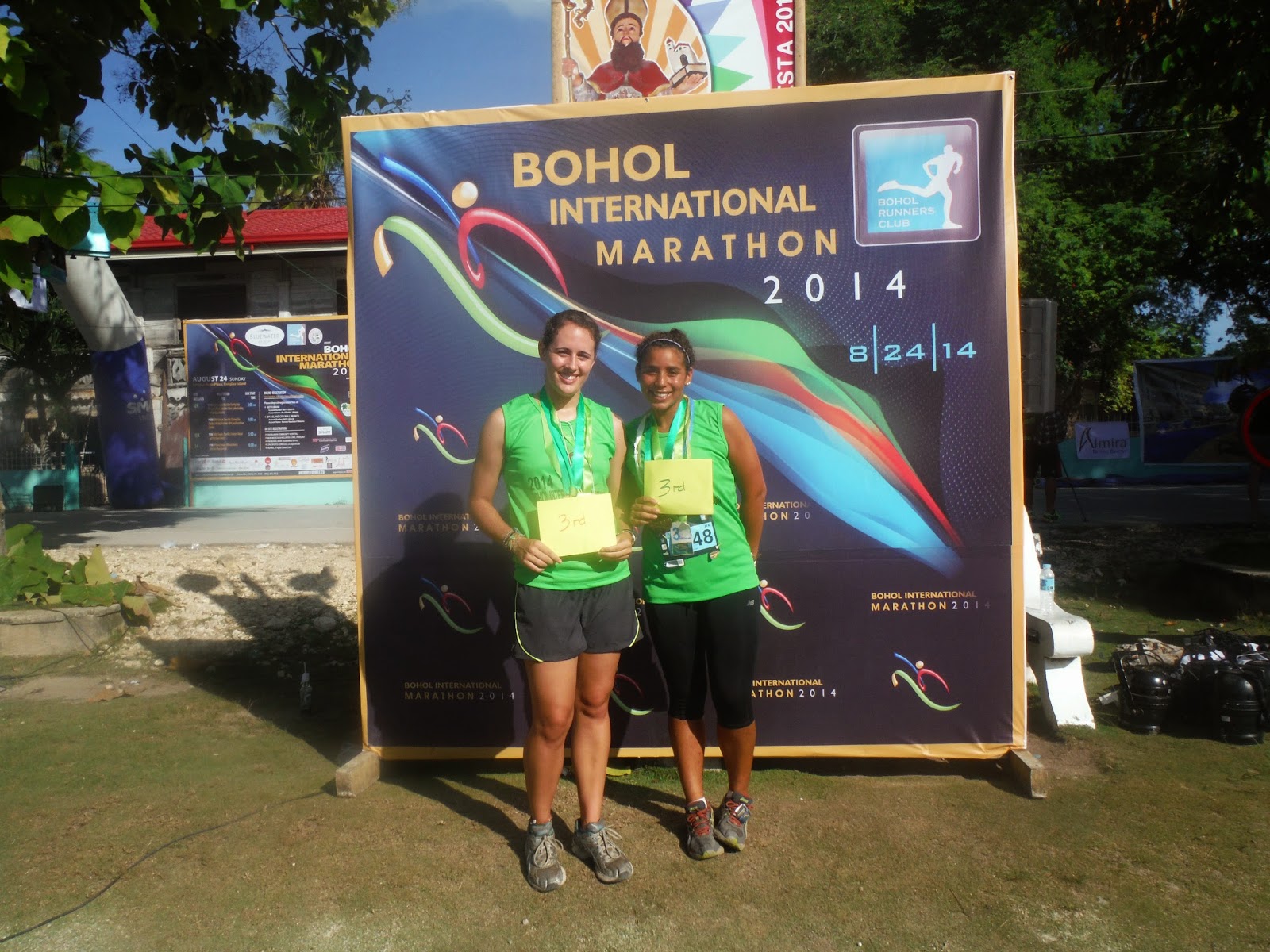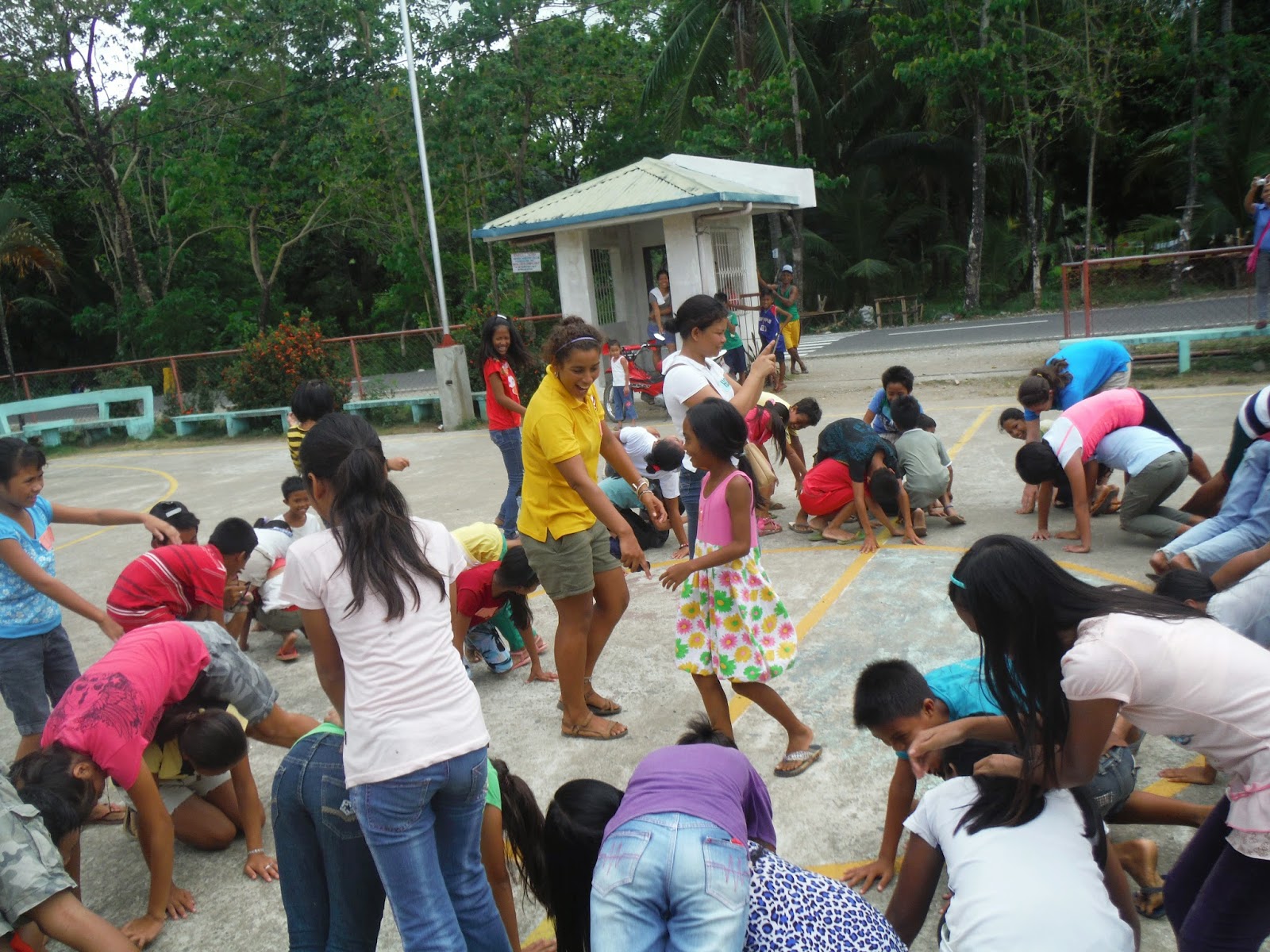I've really let this blog thing slide
in the past few months (and I'm no longer apologizing about that),
but now everything's wrapping up so it's time to revert back to my
college ways and cram everything in at the last minute! I really do
need a deadline to actually get stuff done. It's a problem. So now,
in the last blog I wrote about the success of my big secondary
project, the GLOW camp. With this post I'll tell you the tale of my
big primary project that just finished up a few weeks ago. For quick
clarification, by “primary” project I mean projects having to do
directly with coastal resource management. “Secondary” projects
means anything I do outside of that area, like a girls' empowerment
camp for example.
My big primary project was the
expansion and renovation of the guardhouse at one of my site's marine
protected areas (MPAs). I can't remember how much explanation I've
done in the past of these terms so I'll just be safe and explain
everything. A MPA is a roped off area of water where fishermen are
not allowed to fish or even pass through, usually where there are
healthy coral reefs. If there is healthy coral then there are
probably a lot of fish using that area as their home. The MPA
protects this area for two reasons: it acts as a breading ground for
the fish so fishing efforts don't diminish the fish population in the
area, and it protects the coral from destructive fishing practices
that damage the coral and thereby ruin the fish's homes. The size of
the MPA depends on the size of the area covered by the coral. Usually
all the healthy coral in a concentrated area is enclosed within the
MPA, so the sizes vary considerably; some can be 4 hectares and
others can be 20 hectares or even more. It's really specific to the
area. The idea is that once the fish are big enough and wander
further and further from home they'll enter the “spillover” area,
or the area just outside the perimeter of the MPA. In this area the
fishermen are free to fish. The fish in this spillover area are
usually larger because they've had a change to grow and develop (as
well as lay their eggs in the breeding grounds), and they're also a
species that is plentiful within the MPA, meaning fishing them will
not harm the balance of the species populations. If you're interested
in learning more about MPAs you can check out this article
http://www.philsciletters.org/pdf/2012n2.19p18.pdf
about the start of MPAs on an island actually really close to my site
that I can see from this guardhouse that we build. Now this is a
really well founded strategy for combating the issue of
over-exploited fishing here in the Philippines. The only problem is
that fishermen don't always acknowledge these boundaries. They're
focused on the food for today, not the outlook of the future.
And this brings us to the purpose of
the guardhouse! A guardhouse is a small building on the beach
overlooking the MPA. The obvious reason it's there is to “guard”
the MPA against illegal fishing practices. Members of the bantay
dagat (literally translated to
beach guards) can use this building as a sheltered base for watching
over it. The guardhouse also acts as a meeting place for the
community's fishermen's association that meets there monthly to
discuss fishing topics and learn about updates in the fisheries world
from the LGU (local government unit) that also attends these
meetings. The fishermen's association can also use this guardhouse as
a site for education campaigns with both locals and visiting
tourists, encouraging healthy fishing practices and environmental
consideration.
The
existing guardhouse at this site was an insufficient building 6'x10',
too small to be practical, with holes in the roof (and this is a
problem during the rainy season of a tropical climate as you can
image). The association that meets here is filled with dedicated
local fisherfolk, committed to increasing their fishing output and
spreading the awareness of MPAs and the reasons behind their
necessity. Improving their guardhouse had been on their to-do list
for a few years, they just lacked the funds to do so effectively.
That's where I came it! I obtained a grant from one of Peace Corps'
many connections and we got right to work!
Since
I'm a young foreign female I wasn't allowed to help with the actual
construction of the guardhouse (poo), so I assisted on the planning
side instead, being in charge of the money spending, coordinating
between the association, the materials supplier, and my office, and
trying to keep us on schedule. This last part was impossible to do. I
thought I had allowed for sufficient leniencies in the timeline even
given Filipino time....I was wrong. Originally we had planned for
this project to be completed in March, but we didn't even start the
construction until mid-July. Many of the reasons for these delays
were out of our hands, having to do with transportation issues since
this barangay was 45 minutes away from the town proper on bad roads
(something I don't recommend trying to deal with if you can avoid it
(the having a project in a rural barangay bit I mean, not the bad
roads; those are really fun to ride on!)). But despite the delays and
pushing back the deadline 4 times it was finally finished!!
We had
the blessing and opening ceremony on August 27th.
And apparently it was a pretty important occasion because we had the
vice mayor in attendance and a priest with holy water to actually
bless the building! I'm not sure what I had expected when I was told
we were going to have a blessing, but I didn't think we would light
candles, have a small service in front of the guardhouse, and then
follow the priest through the building while he sprinkled holy water
on the walls. But that's what we did! This was followed by speeches
given by all the leaders in attendance, including me clumsily reading
from my Cebuano cheat sheet (to many friendly laughs in the crowd at
me completely embarrassing myself, which in turn cracked me up and
made it that much harder to get through my speech with my tongue
getting tied in the middle of every sentence), and then cutting the
ribbon, which they let me do! I've never cut the ribbon at a building
opening before so I think that's a pretty notable addition to the
resume.
I
think the biggest success of this project was the fact that it was
actually completed
given the obstacles of Filipino time and transportation. But we did
it! Those obstacles usually mean a slow and painful death for a
project in this country. I'd like to think it was my excellent
nagging skills that really pulled it off (maybe something else to add
to the resume), stopping into the office almost every day asking
about the status of this or that. The community members actually did
most of the construction work instead of hiring skilled workers for
every step, creating real pride among them that I think will help
ensure the success of them carrying out the goals of this project.
And this was a great project to finish my service with!
 |
| Entrance to the guardhouse |
 |
| The hanging balls are extra buoys for the MPA they decided to use as decoration. And that area painted blue was what used to exist of the guardhouse. Much too small. |
 |
| View from the beach. Made mostly of native material (bamboo and nipa) |
 |
| The blessing with candles, a priest, make-shirt altar, and cross. |
 |
| The start of the ceremony, singing the Filipino National Anthem. |
And on
that positive note I think I will end this post! Another one coming
soon, I promise!
























